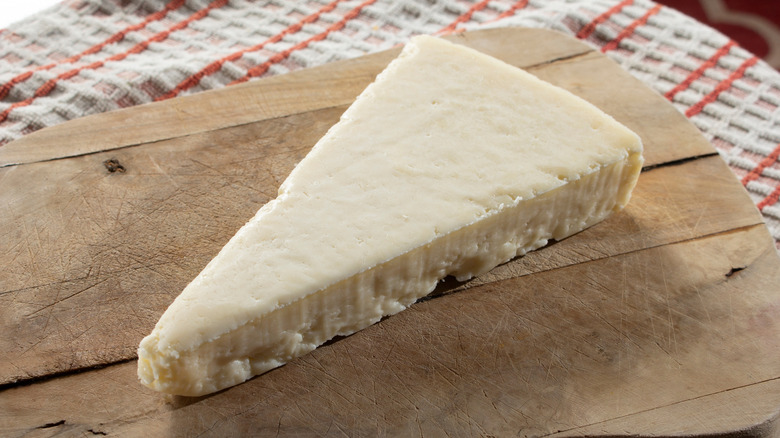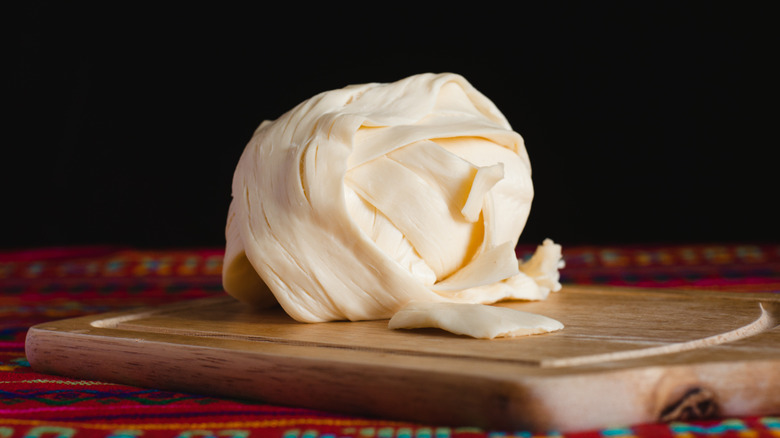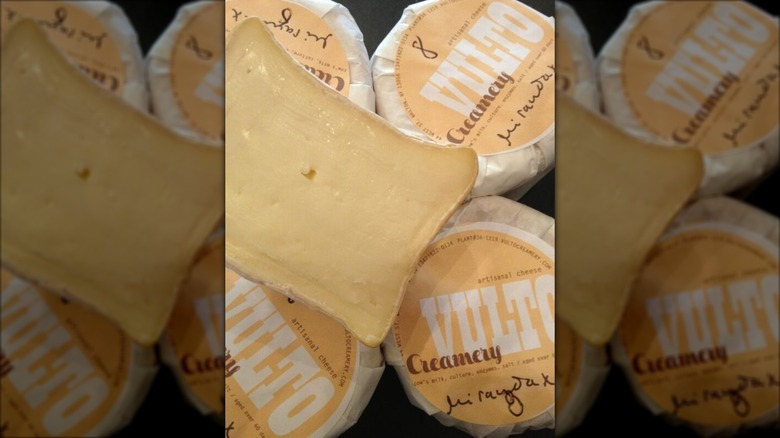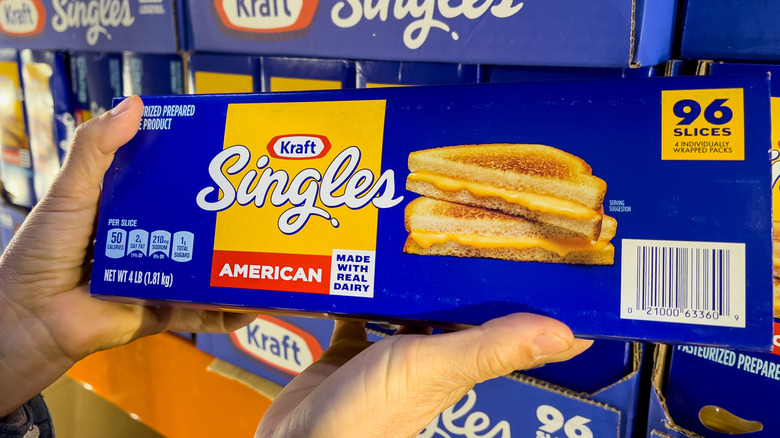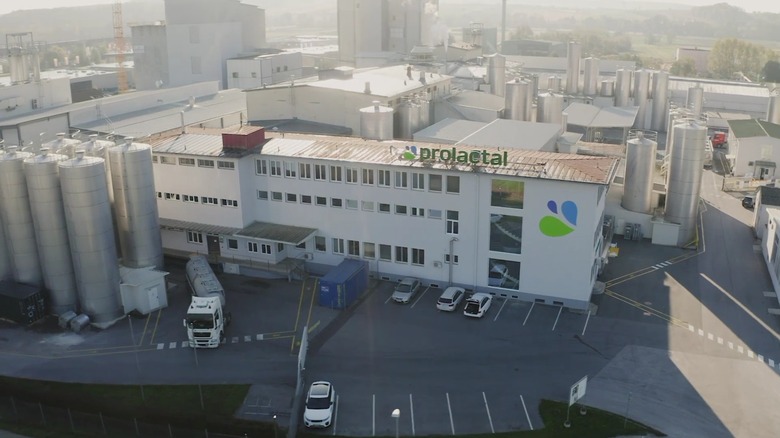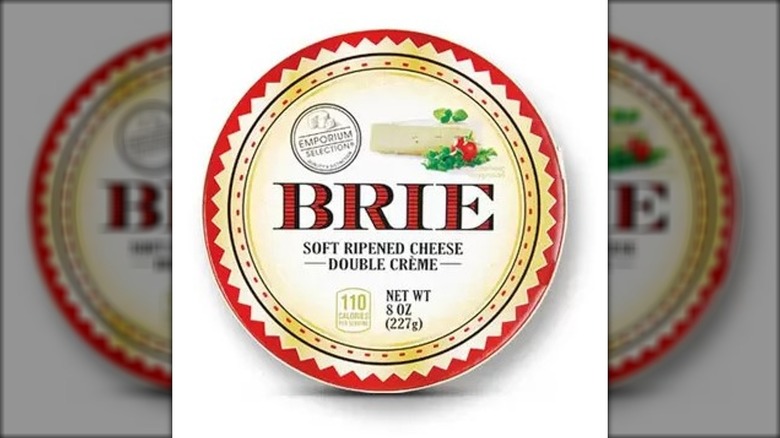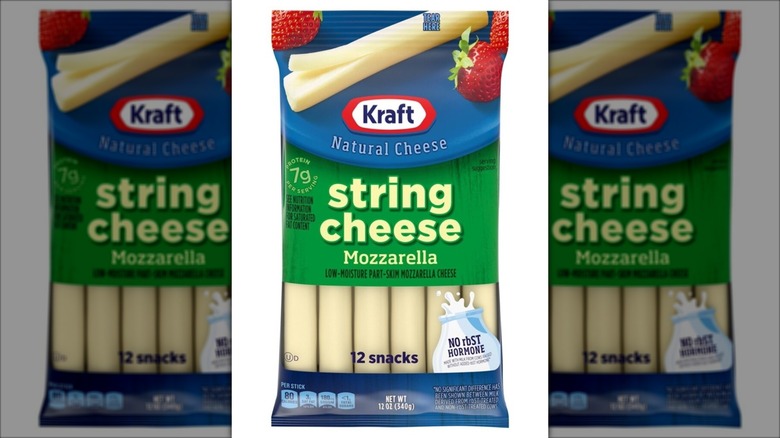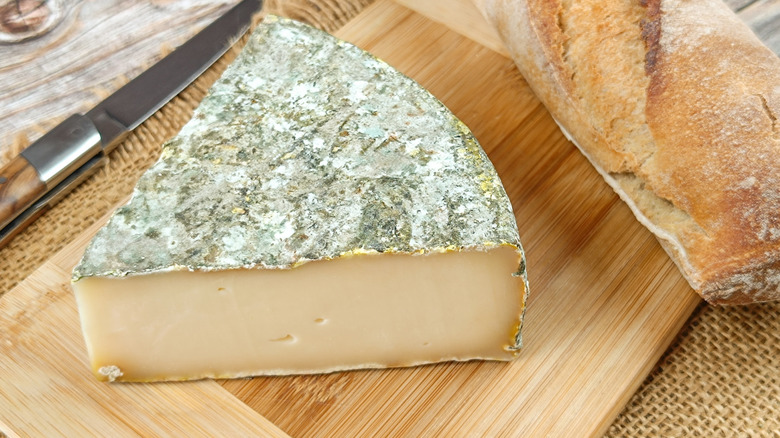Cheese Recalls That Affected Millions
All foods have the potential to cause harm. They could be contaminated with dangerous bacteria, incorrectly packaged, or laced with contaminants. You don't need to look far for examples; everything from peanut butter to ready-to-eat meats have been the epicenter of mass recalls in the past. That being said, cheese is a higher risk item than most other foods. This is largely because many cheeses, especially soft ones, have a high moisture content but low salt and acid contents. According to the Centers for Disease Control and Prevention, this environment makes it easier for potentially harmful bacteria like listeria monocytogenes to thrive. What makes cheese even riskier is that many products are eaten uncooked and are made without pasteurization, the high heat process that effectively kills huge amounts of bacteria.
While manufacturers, retailers, and government organizations all strive to ensure only safe cheese reaches the market, invariably they sometimes fail. As a result, cheese riddled with contaminants, hampered by poor packaging, and infected with harmful bacteria frequently makes its way onto store shelves and into the public's kitchens. In these instances, quick and efficient recalls are the only thing standing between consumers and a serious bout of illness or injury. In this article, we round-up some of the largest cheese recalls in recent memory, highlighting the potentially tragic impacts unsafe cheese can have and the ways that companies pull products from shelves and homes when under severe pressure.
Listeria outbreak associated with Mexican-style cheese
In 1985, it was announced that food manufacturer Jalisco Mexican Products Inc. was recalling several different types of Mexican-style fresh cheese after they were linked with an outbreak of listeriosis, a potentially fatal illness caused by listeria monocytogenes bacteria. According to the Centers for Disease Control and Prevention, listeriosis is particularly dangerous for those who are pregnant as it can lead to miscarriage, stillbirths, or the newborn baby developing a life-threatening infection of its own.
Unfortunately, the 1985 outbreak exemplified these risks. The outbreak killed 28 people, including 10 newborns. A reported total of 20 miscarriages were also linked to the outbreak while several children were born with deformities. The manufacturer recalled its products from California in June of that year. After investigation, Jalisco Mexican Products Inc. was accused of failing to pasteurize all of the milk it used in the production of its cheese products because it did not have the capacity to do so. As a result, both raw and pasteurized milk were mixed together greatly increasing the risk that harmful bacteria would contaminate the products.
Various cheeses from another brand, Cacique Fine Foods, were also linked with this outbreak. This company's recall was far wider, encompassing retailers in 13 states: Alaska, Arizona, California, Colorado, Florida, Idaho, Indiana, Kansas, New Mexico, New York, Oregon, Texas, and Washington State. Approximately 550,000 pounds of Cacique Fine Foods' cheese was included in this recall.
Listeria outbreak killed 14 people
Chile was rocked by an outbreak of listeriosis during 2008 which sickened over 160 people, the majority of them residents of Santiago. Of those who contracted listeriosis, 14 died, including both a baby and a toddler. A large number of pregnant women were also sickened. The outbreak was eventually traced back to Brie and Camembert cheeses produced by Chevrita, a Chilean-French company.
Tests performed by Chile's Epidemiology Department of the Ministry of Public Health found listeria bacteria to be present in some of the cheese, and the products were recalled from all stores. In a subsequent scientific investigation published in Frontiers, it was found that 25% of all of the sampled, recalled Chevrita cheese products were contaminated with listeria monocytogenes bacteria.
In a statement, Chevrita manager Denis Lebret said that the cheese was pasteurized. This suggests that either the cheese was contaminated with listeria monocytogenes after pasteurization took place or that the pasteurization process was not conducted properly. Either way, this outbreak was a tragic event that could have been avoided.
Rizo-López cheese recalled nationwide after listeria outbreak
During February 2024, the Food and Drug Administration announced that Rizo-López Foods Inc. was recalling the entirety of its dairy products including the following cheeses: cotija, freir, fresco, Monterey, Oaxaca, panela, paneer, and Cheddar, one of Britain's best cheeses. This recall was initiated after these cheeses were associated with a multi-state outbreak of listeriosis.
These cheeses were sold under various brands — Trader Joe's and 365 Whole Foods Market among them. Further products were also sold by Costco, Safeway, Sprouts, and many other major retailers. In total, 11 states were involved in the recall. The Centers for Disease Control and Prevention declared the outbreak over on April 9. At this time, a total of 26 people were reported as having fallen ill. Of these, 23 required hospitalization, and two individuals died.
In October, the United States District Court for the Eastern District of California entered a consent decree of permanent injunction against the manufacturer. This injunction means that Rizo-López Foods Inc. is banned from producing any food products until the company takes corrective actions and receives approval from the FDA.
Vulto Creamery recalled all of its raw milk cheese products
In 2017, the Food and Drug Administration shared the news that Vulto Creamery was recalling all manufactured lots of eight different cheeses. Once again, these cheeses were linked with an ongoing listeriosis outbreak that hospitalized eight people, killing two of them. These products were shipped to, and thus recalled from, retailers across the United States.
In an investigation conducted by federal officials after the outbreak, it was concluded that Vulto lacked the knowledge and expertise required to correct the creamery's production process. What's more, inspection of the facility revealed poor hygiene practices and the presence of black mold. Unsurprisingly, Vulto Creamery shut down permanently after the investigation was conducted and the damning report released.
In March 2024, founder of Vulto Creamery Johannes Vulto pleaded guilty to causing the introduction of adulterated food into interstate commerce. He was sentenced to three years of probation and was given a $100,000 fine in July 2024.
Over 330,000 cases of Kraft Singles recalled due to choking hazard
While the vast majority of cheese recalls are due to the presence of potentially harmful bacteria, other issues surrounding the product's manufacturing can also make the cheese unsafe for human consumption. One example of this came in September 2023 when Kraft recalled more than 83,000 cases of Kraft Singles after it received multiple complaints from customers who had choked or gagged on a piece of plastic film.
Upon investigation, it was found that a manufacturing error meant a strip of plastic could remain on the cheese even after it had been removed from its packaging. It was this plastic that was choking customers. During the investigation, Kraft also discovered that this recall affected many more cases than previously thought. The company promptly expanded its recall to include some 335,000 cases.
To make matters more complicated, the affected products were shipped both across the United States and overseas. In fact, cases were recalled from 10 countries outside the U.S., including South Korea and Belize. Thankfully, the faulty Kraft Singles did not cause any lasting injury and all of the faulty cases were successfully recalled.
Old Europe Cheese Inc. recalled several cheeses
Cheese was responsible for another outbreak of listeriosis in 2023. Once again, soft cheeses including Brie, which relies on a specific strain of fungi to be produced, were the focus of the ensuing recall. The company recalled various Brie products that were distributed by major retailers including Lidl, Mejier, and Whole Foods. Surprisingly, even baked cheese products were involved in this recall, suggesting contamination occurred at some point after the manufacturing phase.
Six people were reported as falling ill as a result of the contaminated cheese, five of whom were hospitalized. These cases were spread over California, Georgia, Massachusetts, Michigan, New Jersey, and Texas. As a result of the outbreak, Old Europe Cheese Inc. recalled all of its ready to eat Brie and Camembert products from stores nationwide. The manufacturer also suspended operations until the source of contamination was discovered and dealt with.
The Food and Drug Administration conducted a formal examination of Old Europe Cheese Inc.'s facilities and found several problems with the production, processing, and manufacturing processes. Most notably, the company did not have any steps in place to control post-pasteurization contamination and had some far from stellar sanitation practices. As a result, the company received an official letter of warning from the FDA.
Seven people died after eating acid curd cheese
Tragedy struck central Europe in 2009 when an outbreak of listeriosis killed citizens of both Austria and Germany. Initially, the authorities struggled to unearth the source of the outbreak. It was only after teams of people examined shopping receipts of the affected individuals that they traced the outbreak to Prolactal's sour curd cheese. By the time the outbreak was over, there were 21 reported cases of listeriosis in Austria alone. Five Austrians died from listeriosis as did two Germans.
Once notified, Prolactal, recalled its cheese from retailers in January 2010. Approximately 50,000 metric tons worth of cheese was recalled from retailers, the majority of which were based in Austria. That being said, the contaminated cheese was also recalled from retailers in Germany, the Czech Republic, Slovakia, and Poland. Prolactal halted all operations at its factory until the source of the contamination was discovered and addressed.
Various Savencia Cheese products recalled over listeria scare
On November 2, 2024, manufacturer Savencia Cheese USA recalled six of its soft cheese products amid concerns that a piece of processing equipment used to make them might have been contaminated with listeria monocytogenes bacteria. The company expanded the recall two days later to include one further product: Glenview Farms Spreadable Brie. Despite seven products being recalled, Savencia Cheese USA assured its customers that no returned products had tested positive for the presence of listeria monocytogenes and that the ongoing recall was purely precautionary.
It is not known which states Savencia Cheese USA's products were recalled from. However, in association with Savencia Cheese USA, Aldi recalled its Emporium Selection Brie Soft Ripened Cheese from stores in Arkansas, Illinois, Indiana, Iowa, Kentucky, and Missouri. As a result, we know the recall spanned six states at least. Despite this, there were no confirmed reports of illness arising from the recalled products, marking this recall as a successful one.
800,000 units of cream cheese recalled amid salmonella concerns
In June 2024, Schreiber Foods Inc., a dairy company based in Wisconsin, recalled a staggering 836,721 units of various cream cheese products — all of them spreads — amid concerns they'd been contaminated with salmonella bacteria. To make matters even more complicated, these products were sold by various companies, including Dunkin' and Kroger, across 19 states. A few of the affected products were even shipped to Puerto Rico, and had to be recalled from there.
If ingested, salmonella bacteria can cause a disease known as salmonellosis to develop. The Food and Drug Administration notes that the symptoms of salmonellosis include diarrhea, fever, and vomiting. Usually, these symptoms pass and patients do not require treatment. That being said, salmonellosis does kill hundreds of Americans every year.
As a result of this recall, Aldi issued its own cream cheese recall in association with Schreiber Foods Inc. This one was even larger in scope with four cream cheese products, including a strawberry-flavored cream cheese spread, being recalled from 29 states. Despite the huge, international, and multi-state nature of Schreiber Foods Inc.'s recall, no illnesses or fatalities were reported. This marks a lucky escape for not only the company but thousands of its potential consumers.
1.2 million cases of cottage cheese recalled
Kraft suffered another devastating, cheese-related setback in the summer of 2014 when it recalled 1.2 million cases of cottage cheese. The recall was initiated after employees discovered that some ingredients stored in its Californian facility had not been kept at the correct temperatures. This meant the finished product, which was shipped nationwide, might spoil early and could act as a vehicle for various foodborne illnesses. Aside from recalling all the affected products, Kraft also suspended operations at its Californian facility until it was discovered how this mistake was made and actions were taken to rectify the issue.
The cottage cheese was sold under four brands: Breakstone, Simply Kraft, Knudsen, and Daily Chef. On average, each of these brands carried approximately 10 units per case meaning that around 12 million units of product were included in the recall. This is a huge amount that undoubtedly impacted Kraft's operations.
735,000 cases of string cheese recalled
While enormous in scope, Kraft's cottage cheese recall was not the first time the company had to recall cheese due to concerns that it would spoil prematurely. In fact, a similar recall was conducted one year prior to the cottage cheese debacle when, in 2013, it was reported by several customers that a variety of Kraft and Polly-O string cheese products were spoiling well before their expiration date. All told, 22 products and a grand total of 735,000 cases were recalled as a result of these complaints.
In a notice shared by the Food and Drug Administration, and disseminated by various media outlets, Kraft announced that it had suspended operations at its Campbell, New York facility until the issue was resolved. The company did not share what had caused the affected products to spoil prematurely nor which states they were being recalled from. However, Kraft did state that no string cheese products had been exported out of the United States.
Le Chasteau cheeses recalled amid salmonella outbreak
In the summer of 2024, GAEC Deflisque issued a massive recall for Saint-Nectaire-style cheese sold under the Le Chasteau brand. This recall was initiated after tests conducted at the beginning of August confirmed that salmonella bacteria was present at one of the company's factories. While the factory was closed from July 23, many units of the affected cheese made it to the market where it was bought and consumed by French citizens, predominantly those living in Puy-de-Dôme, Corrèze, and Creuse. A total of 72 people were reported as falling ill with salmonellosis.
The recall encompassed all batches sold under the La Chasteau brand from March 2024 up until the date of the recall. While exact numbers were not shared by GAEC Deflisque, the total number of units recalled by the company must have been significant. Despite this, the company's owner remained sure of their innocence. In a statement shared by The Connexion, the owner said, "You can never be sure when it's a health problem. But they have no evidence against us."
Raw milk cheese recalled from five countries
Raw milk cheese is cheese that's made with unpasteurized milk. Popular in Europe, this is one factor that gives European cheese its famously pungent odor. However, using unpasteurized milk does come with some risks as French company Le Moulis SAS became all too aware of.
An international, cheese-based recall was initiated in October 2019 when Le Moulis SAS recalled two of its raw cow's milk Bethmale cheese products, Moulis Vache and Moulis Vache Prestige, amid concerns they'd been contaminated with Shiga toxin-producing E. coli. This is an especially concerning strain of the bacteria; according to the New York State Department of Health, if ingested this bacteria can cause people (usually children under the age of five) to develop a life-threatening disease known as hemolytic uremic syndrome.
As if this were not concerning enough, further lots of Moulis Vache and Moulis Vache Prestige were recalled alongside lots of Bethmale de Marterat because there was a chance they'd been contaminated with listeria monocytogenes bacteria. All of these products were distributed to, and recalled from, Austria, Belgium, Germany, Spain, and Switzerland. Miraculously, no people were reported as falling ill as a result of eating these contaminated cheeses.

